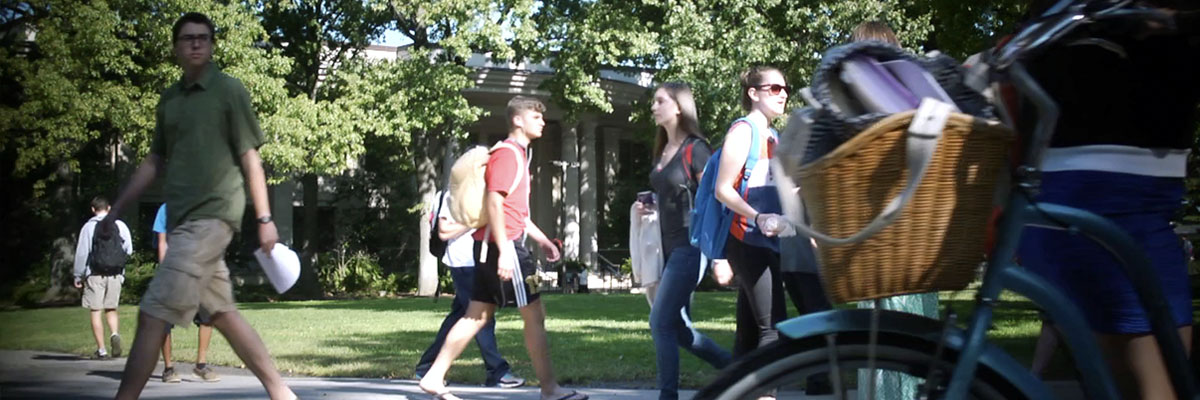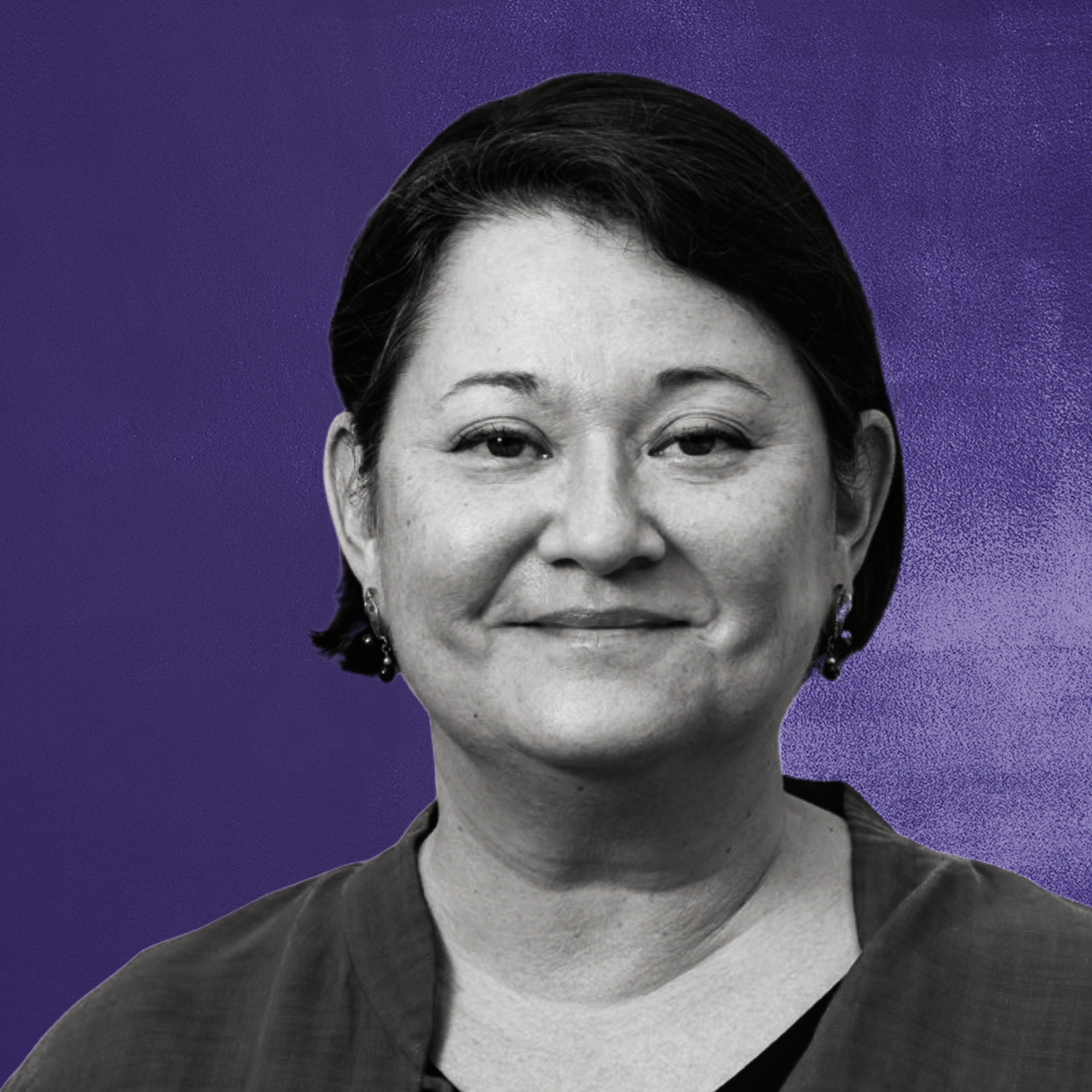International Student Support

As an international student, you will have unique needs and we work to support you through your academic and cultural transitions.
We believe in diversity and inclusion–a value that helps foster appreciation and acceptance for all in our community. This is at the heart of our work, allowing us to offer programs that both support and welcome our international students.
Kogod's Office of International Student Development offers one-on-one support for:
- School transitions
- Academic English language skill improvement
- Making the most of relationships with classmates and faculty
- Services that assist and engage international students
Each semester, Kogod hosts mandatory orientation programming for all new students, international and domestic. The dates of these programs change each year and are communicated through email. If you are an undergraduate student and not sure of the orientation dates that apply to you, visit the Orientation, Transition, and Retention website.
If you are a Kogod graduate student and not sure of the orientation dates that apply to you, contact the graduate programs office at kogodgradprograms@american.edu.
Each semester, International Student Scholar Services (ISSS) also hosts a mandatory orientation for new international students. Contact ISSS at isss@american.edu or call +1-202-885-3350 with questions.
As both orientation programs are required for international students, we recommend that students arrive in the Washington, DC, area and move into their new homes no later than one week before the first day of classes.
Learning to introduce yourself seems hard at first, but it gets easier each time. Look for something you have in common with the other person and use that as an opener. For example, when meeting another student, you could say, “Hi, I’m Shari. I’m a finance major. What’s your major?”
Commenting on the current weather is a common and acceptable shared topic: “Hi, I’m Shari. Is it always this cold/hot/windy/rainy/humid here? It’s very different in my hometown.” For help with the “small talk” that usually follows an introduction, ask your friends for advice, or make an appointment with Shari.
Of course, becoming comfortable with introducing yourself is an important step toward making American friends. If a person is making eye contact with you and smiling, it usually means that they are open to meeting you. If a person makes eye contact and quickly looks away, don’t be offended. It’s probably just not a good time for them to meet someone new.
In some cultures, people who are put together in the same group/class/organization are expected to become friends immediately. This is not true in the US. Americans tend to be friendly with many people but form deep friendships with only a few, so don’t be discouraged. Friendships with Americans develop over time.
Class participation is often a significant part of your final grade. Professors want to know that you are engaged and understand the material, and speaking up in class is one way to show this.
Some instructors insist that every student speaks at some point during the class, and they take note of who does not. Some professors might pay attention to other ways students participate, through note-taking, active listening, and keeping eye contact in class.
The best way to know what is expected is to speak to each of your professors and ask them, “How can I best participate in your class?” Then try to act accordingly. Make an appointment with Shari if you need help with this.
Group projects are prevalent in the American classroom. They teach students about working together toward a common goal. Important skills like communication, collaboration, and application can often be better learned in a group than by yourself.
Introduce yourself to your fellow group members and let them know that you want to participate fully. In the US, people often assume that quiet group members have nothing to say. (It’s a cultural thing, and it’s not always true). If you need help with conversational skills, such as getting your turn to speak, interrupting, or stating your opinion, please make an appointment with Shari.
It is important in American culture to do what you say you’re going to do. This includes attending classes, group meetings, and appointments with anyone to whom you’ve committed. Missing a meeting without giving any notice or an acceptable excuse is disrespectful to the other person’s time. It might cause that person to think that you are irresponsible or unprofessional.
If you must break a commitment, if possible, let the professor/group/other person know as soon as you can. If you missed or forgot an appointment, apologize as soon as possible. It is customary to give an excuse; it is acceptable to be vague: “I’m so sorry that I missed our appointment/class. I was ill/dealing with a personal matter.”
It is a good idea to visit each of your professors during office hours at the beginning of the semester. Office hours are specifically for student visits and questions. You can consult your class syllabus for a specific professor’s schedule.
Initially, you can introduce yourself to the professor, and you can say that the student development team advised you to meet with them. “Hello professor, I’m Shari Pattillo, and I’m in your ACCT-240 class. I know it’s a good idea to meet you early in the semester, so that’s why I’m here.” The professor may ask you a question, or if you have a question, you can ask it. It is always fine to end with, “It was nice to see you,” when you are ready to leave.
Business writing is unlike other writing styles. It is important to be direct and to give your most important idea at the beginning. This can be a big change for students from other cultures.
The Kogod Center for Professionalism and Communications should be your primary resource for getting help with your business writing. You can make an appointment to meet with a writing consultant who will help you write in a style that is acceptable to your professor.
Assigned reading can be overwhelming in another language, but there are strategies that can help you read more effectively. The first step is becoming familiar with the text through “pre-reading.” Look over the text and ask yourself some questions: What is probably the main idea? Who wrote it? Why? How long is it? (It’s OK if your assumptions end up being wrong; the point is to begin to interact with the text.)
Plan to review a text more than once, and always take notes while reading. (Highlighting is usually not effective.) Start with the main ideas during the first reading and then add details during subsequent passes. Don’t waste time looking up every unfamiliar word.
Get help! Make an appointment with Shari to create a personalized strategy for managing your reading using your own class texts.
There are many factors to consider when looking for a job or internship as an international student. The Kogod Office of Career Engagement can help you plan for your professional future. Make an appointment with the Office of Career Engagement to begin your job search, get help with your resume, or prepare for an interview.
If you have questions about employment and visa or immigration requirements, please see International Student and Scholar Services (ISSS).
Within Kogod, there are many business-specific, student-run clubs and organizations. These groups bring together like-minded individuals and may be a great way for you to meet new people who share similar interests.
Many clubs and organizations are focused on a business discipline (like the Accounting Club), but there are some social groups you can join at Kogod as well. View the full list of Kogod clubs and organizations. American University also offers many other clubs and organizations.
There are many factors that can lead to a less-than-awesome semester. Changes in health, environment, class load, or relationships are just a few of the things that can affect a student’s well-being. Transitions of any kind can influence your academic performance. For instance, students in their first semester often forget that after six to 12 weeks, it is normal to feel a little depressed or homesick–but these feelings should pass.
If you are not feeling like yourself, it’s important to let someone know.
Americans generally accept and admire people who seek help when they need it. Stop by to see Shari in KSB T37; she can help you figure out what you might need to do to start feeling better. Alternatively, stop by the AU Counseling Center in MGC 214.
Note: If you ever feel like you might hurt yourself or others, get help immediately. If on campus, call Public Safety at 202-885-3636. If you are off-campus, call 911.
Get in Touch

Shari Pattillo is the Director of Student Development and Services at the Kogod School of Business. Before coming to KSB in 2017, she was a counselor in the Academic Support and Access Center, Office of Campus Life, for over nine years. Before joining the university staff, she was an adjunct instructor at AU while working at the Center for Applied Linguistics in overseas refugee education. She enjoys travel and has been a staff advisor on several Alternative Breaks.